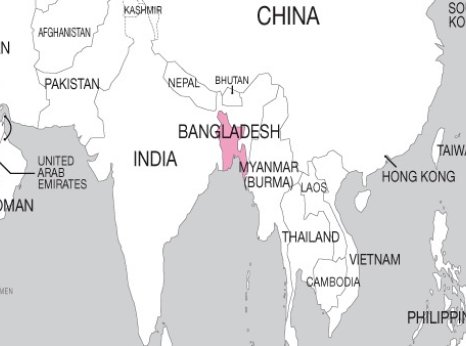Bangladesh: Thousands Of Protesters Arrested Arbitrarily

Since 1 July 2024, Bangladesh has been engulfed in widespread protests following the reinstatement of a controversial 30 percent quota in government jobs for the descendants of independence war veterans. This quota, previously abolished in 2018 due to similar protests, is seen by many, especially university students, as disproportionately favouring supporters of the ruling party. The protests, largely peaceful initially, turned violent after demonstrators were attacked, reportedly by members of the Bangladesh Chatra League (BCL) affiliated with the ruling party, on 15 July at Dhaka University and other institutions. These attacks included the use of rods, sticks, bricks, and firearms, leading to numerous injuries and escalating tensions across the country. Authorities have since arrested thousands of protesters.
On 5 August, the former Prime Minister Sheikh Hasina resigned and fled the country after 15 years of being in power. Over the weekend prior to that, some of the students were released on bail, and since Hasina’s departure, more students have been released on bail. However, many are still in prison.
18-year-old Rony was in the middle of his Higher Secondary Certificate (HSC – A/L equivalent) when he was arrested on 22 July. According to his family members, the authorities came to his residence where he has rented a room, checked his mobile phone and arrested as he had videos of the protests in his mobile. He has not had access to his lawyer or family yet.
The situation deteriorated further on 19 July, when the deadliest crackdown happened with 75 deaths reported in one day. The government responded by deploying the military and paramilitary forces such as the Rapid Action Battalion (RAB) and Border Guards Bangladesh (BGB), and imposing a "shoot-on-sight" curfew along with a nationwide internet blackout. Amnesty International has verified multiple instances of unlawful force, including the death of Abu Sayed, a 25-year-old student, who was shot by police officers from a distance of 15 meters while posing no threat. The Dhaka Metropolitan Police (DMP) further escalated the situation by banning all rallies and processions in the capital, leading to more aggressive tactics by security forces, including the unlawful use of tear gas, rubber bullets, and sound grenades and assault rifles.
As of 31 July 2024, more than 200 have been killed (the government statistics say 145), thousands injured and over 10,000 arrested. Most of them are charged in unnamed mass First Incident Reports. According to media reports, the mass arrests have been carried out by various security forces who shut down the internet connection in the neighbourhoods they raided and went to houses to arrest the students. Three students who were being treated in hospital were discharged under coercion and taken into custody, though the Minister of Law made a statement claiming that these students were taken in custody for their own safety.
International law is clear on how law enforcement authorities should respond when certain protesters become violent. According to the UN Human Rights Committee’s General Comment No. 37 on the Right of Peaceful Assembly, participants in an assembly cannot be held responsible for isolated acts of violence by only a few protesters. Furthermore, even where an individual engages in violent conduct (placing them outside the protective scope of the right of peaceful assembly), their other rights must still be protected. It is paramount that the unlawful use of violence by the security forces is investigated and perpetrators are held to account.
This crisis underscores a broader pattern of repression in Bangladesh, where laws like the Digital Security Act 2018 and its successor, the Cyber Security Act 2023, are used to stifle dissent and free speech. The international community's intervention is crucial to pressuring the Bangladeshi government to uphold its human rights obligations and restore public trust in the rule of law.